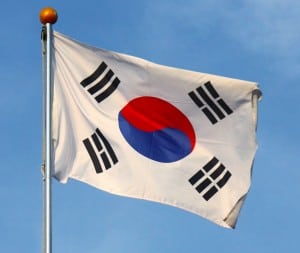 On December 23, 2016, the Fair Distributorship Transactions Act will take effect. The Fair Distributorship Transactions Act ( “FDTA” or “Act”) is Korea’s new law governing unfair trade practices in distributorship transactions.The distributors can be retail outletsthat sell directly to the end consumers or the distributors or middlemen that sell to retail outlets or stores. The FDTA, upon review can be seen as very onerous law, especially when it is applied to suppliers.
On December 23, 2016, the Fair Distributorship Transactions Act will take effect. The Fair Distributorship Transactions Act ( “FDTA” or “Act”) is Korea’s new law governing unfair trade practices in distributorship transactions.The distributors can be retail outletsthat sell directly to the end consumers or the distributors or middlemen that sell to retail outlets or stores. The FDTA, upon review can be seen as very onerous law, especially when it is applied to suppliers.
Among the obligations of a supplier under the FDTA is that the supplier must prepare and retain written agreements which must include certain terms. The terms include provisions covering the transaction type, products, delivery method, place and time of delivery, method of payment, and conditions for return of product as well as causes for termination. Failure to comply with the obligations can result in an administrative fine levied by the KFTC. In the case of a failure to draft the agreement with the prescribed terms, the supplier many be fined up to KRW 50 Million Won.
The FDTA contains a number of unfair trade practices types that suppliers must be aware of. and guard against. Though some of the unfair trade practices set forth in the FDTA may be seen as overlapping with the types of abuses under the Monopoly Regulation and Fair Trade Act (“MRFTA”), the FDTA will pre-empt the MRFTA for any unfair trade practices arising from the supplier-distributorship transactions as of December 23, 2016. The main unfair trade practices are as follows:
Besides covering a broad number of unfair trade practices which can subject a supplier to fines and penalties, the Act also subjects violators to damages, large administrative penalties and criminal sanctions. The potential exposure to large fines and penalties are as follows:
Considering the current environment surrounding the promulgation of the FDTA, it is expected the Act will be found constitutional if challenged at the Korean Constitutional Court. This added to the potentially large fines and criminal penalties as well as expected aggressive enforcement by the KFTC, necessitates suppliers to fully comply with the Act and to seek legal counsel prior to entering into agreements with distributors. For those companies wishing to set up distributors in Korea or those companies who already have distributors in Korea, I recommend a thorough analysis of the proposed distributorship agreement as well as the current distributor set up. It is not uncommon for a disgruntled distributor to look at all legal options when considering a claim against the supplier.